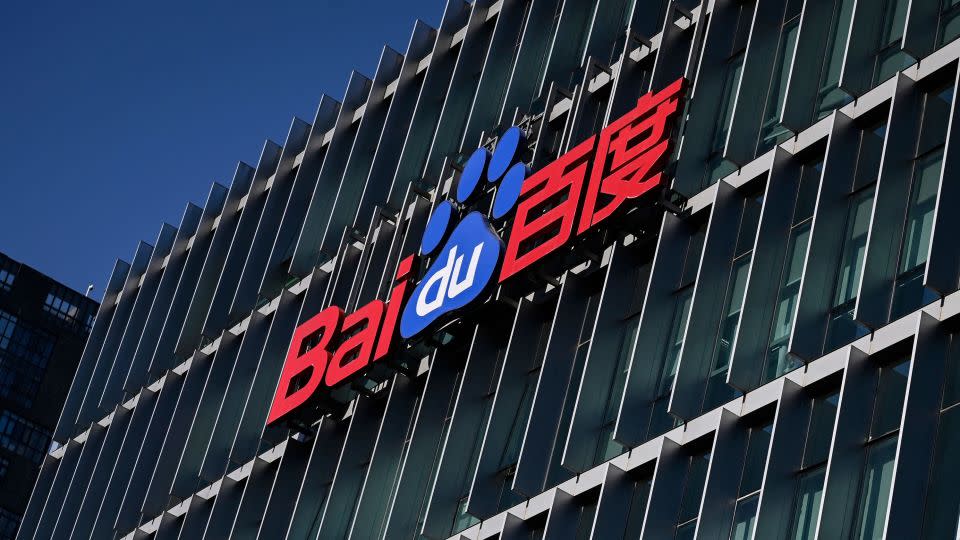Editor’s Note: Sign up for CNN’s Meanwhile in China newsletter which explores what you need to know about the country’s rise and how it impacts the world.
A Chinese tech executive has ignited outrage in China with her fiery endorsement of toxic workplace culture, which eventually caused her to lose her own job.
Qu Jing, Baidu’s former vice president and head of communications, sparked a public relations crisis for the Chinese search engine after her controversial comments hit a raw nerve with young workers fed up with grueling hours and relentless pressure.
In a series of short videos posted last week on Douyin, China’s version of TikTok, Qu spoke about her devotion to her career, strict management style and unflagging demands on her direct reports.
In one video, she lashed out at an employee who refused to go on a 50-day business trip during the Covid-19 pandemic, when China imposed stringent travel restrictions and quarantines.
“Why should I take my employee’s family into consideration? I’m not her mother-in-law,” Qu said. “I’m 10 years, 20 years older than you. I didn’t feel bitter about it or tired, even though I have two children. Who are you to tell me that your husband can’t stand it?”
In another clip, Qu shared her personal sacrifices as a working mother. She was working so hard that she forgot her elder son’s birthday and what grade her younger son was in at school. She said she didn’t regret it because she “chose to become a career woman.”
“If you work in public relations, don’t expect weekends off,” she said in a third video. “Keep your phone on 24 hours a day, always ready to respond.”
In another video, she also threatened to retaliate against employees who complain about her, saying they wouldn’t get another job in the industry.
But now, following the public outcry, Qu has lost her own job at Baidu (BIDU), a person familiar with the matter told CNN on condition of anonymity. CNN has also seen a screenshot of an internal personnel system that appears to confirm she no longer works at the company.
Baidu did not immediately respond to a request for comment. By Thursday night, Qu had removed the title of “Baidu’s vice president” from her account on Douyin, China’s version of TikTok.
Qu had apologized earlier in the day and said her posts did not speak for Baidu.

‘Lack of empathy’
The controversy soon became a trending topic on Douyin and Weibo, China’s X-like platform, dominating online discussions. Users criticized Qu for her aggressive and insensitive approach and accused her, and Baidu, of promoting a toxic workplace.
“In her voice and in her tone, there’s deep indifference to and lack of empathy for the common plight of her colleagues,” said Ivy Yang, a China tech analyst and founder of consulting firm Wavelet Strategy.
“A lot of what she said really struck a nerve, because people feel that in their own workplaces very often. The fact that she said it in a way that’s so direct and in your face, it just generated this kind of emotional response,” she said.
“This is what the bosses are thinking, and she was merely saying it out aloud,” Yang added.
China’s young workers have increasingly spoken out against the culture of excessive overwork and extreme competitiveness that has come to dominate many industries, especially the tech sector.
In 2019, Alibaba co-founder Jack Ma drew intense criticism after endorsing the “996” trend, meaning working from 9 a.m. to 9 p.m. six days a week, and calling it a “huge blessing.”
Yang called the backlash against Ma a “watershed moment” that led people to rethink the relationship between the workplace and themselves — a trend that has only intensified as the Chinese economy slows.
China’s economy grew stronger than expected at the start of this year, but problems — including a property crisis, declining foreign investment and tepid consumption — are piling up.
“When companies demand complete loyalty, time and energy from their employees, employees feel there’s no reciprocity or reward for their sacrifice or contribution, especially when things are slowing down. That becomes the central conflict, and this conflict is also at the heart of the Baidu saga,” Yang added.
As public anger mounted, the videos posted on Qu’s personal Douyin account were taken down.
‘Inappropriate points’
After days of silence, Qu apologized on Thursday for “causing such a big storm” in a post on her personal account on WeChat, China’s most popular social media app.
“I have carefully read all the opinions and comments from various platforms, and many criticisms are very pertinent. I deeply reflect on and humbly accept them,” Qu wrote.
She also sought to put distance between her remarks and Baidu, saying she had not sought approval beforehand and that they did not represent the company’s stance.
“There were many inappropriate and unsuitable points made in the videos, which led to misunderstandings about the company’s values and culture, causing serious harm,” Qu wrote.
A person familiar with the matter said Qu’s clips were part of her push to amplify Baidu’s voice on short video platforms, which have become an increasingly important channel for information dissemination in China.
Qu had asked all members of the PR team to create their personal accounts, according to the person, who requested anonymity.
“The main purpose is to improve everyone’s ability to make short videos. Everyone can have different options over the content, and Cristina chose to speak about her personal experience,” said the person, referring to Qu’s English name.
Qu worked as a reporter for China’s state news agency Xinhua before switching to the PR industry. She joined Baidu in 2021 from Huawei, a Chinese tech giant known for its hard-charging “wolf culture,” where employees are expected to emulate wolves’ bloodthirsty nature, fearlessness and resilience.
A former Baidu employee said Qu brought Huawei’s aggressive corporate culture with her to Baidu.
“(She triggered) a pretty big culture shock. About 60% of the team left within months of her arrival,” the former employee told CNN on the condition of anonymity.
The PR team is expected to always be available, keep their phones on, reply to messages immediately and attend meetings at midnight and on weekends with short notice, the former employee said.
Qu also adopted the military-style language used in corporate management at Huawei, requiring the team to be “disciplined” and “able to win battles,” the former employee said.
CNN has reached out to Huawei for comment.
This article has been updated with additional information.
For more CNN news and newsletters create an account at CNN.com
